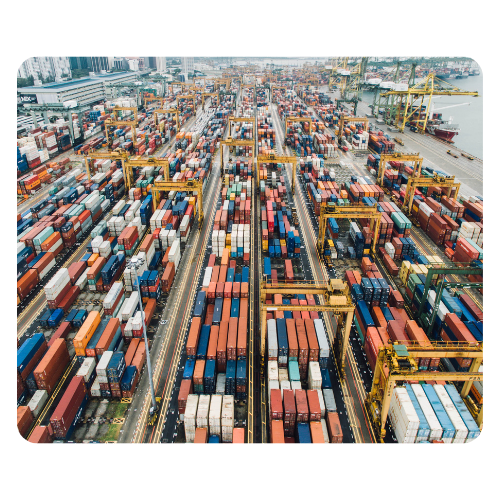Intrastat Filing & Compliance
Intrastat Declaration
Have you exceeded your Intrastat limit?
We can send the declaration for you –
quickly and without mistakes.
Progi Intrastat
Free consultation

Intrastat in Europe – Your data, our responsibility
Intrastat is an obligation that may come as a surprise to many entrepreneurs operating internationally. Although the customs system within the European Union has been abolished, trade statistics still need to be collected. That is why Intrastat was created — a European statistical system that monitors the movement of goods between member states.
With us, you don't have to worry about errors, deadlines, or complicated thresholds. We will handle everything — from analyzing your obligations to preparing the declarations and submitting them on time.
What we do
How does it work with us?
 Fill out the form or contact our expert.
Fill out the form or contact our expert.
 We will quickly assess whether the obligation applies to you as part of a free consultation.
We will quickly assess whether the obligation applies to you as part of a free consultation.
 We will report Intrastat for you and support you throughout the entire process.
We will report Intrastat for you and support you throughout the entire process.
Who is subject to
the Intrastat obligation?

If you run a business in the EU and exceed the specified trade value thresholds, Intrastat applies to you.
This obligation mainly concerns:
 VAT taxpayers carrying out intra-Community supplies and acquisitions of goods.
VAT taxpayers carrying out intra-Community supplies and acquisitions of goods.
 Companies transporting goods within the European Union — both in the form of exports and imports.
Companies transporting goods within the European Union — both in the form of exports and imports.
What information must be reported?
The Intrastat declaration requires precise information, including:
 Commodity code (in accordance with the CN classification),
Commodity code (in accordance with the CN classification),
 Quantity and unit of measurement,
Quantity and unit of measurement,
 Transaction value (in euros or the national currency),
Transaction value (in euros or the national currency),
 Country of dispatch and destination,
Country of dispatch and destination,
 Identification details of your company.
Identification details of your company.
FAQ
Frequently Asked Questions about Intrastat Declarations
1. What is an Intrastat declaration?
An Intrastat declaration is a mandatory statistical report submitted by companies engaged in trade of goods with European Union countries. It is used to monitor the movement of goods within the EU.
2. Who must submit an Intrastat declaration?
Entrepreneurs whose trade value with other EU countries exceeds the statistical thresholds set by the Central Statistical Office (GUS) are required to submit an Intrastat declaration.
3. What are the thresholds for submitting an Intrastat declaration?
Intrastat thresholds are set annually by GUS and differ depending on the type of declaration — "arrivals" and "dispatches". Exceeding the threshold obligates monthly data reporting.
4. How do you submit an Intrastat declaration?
The Intrastat declaration must be submitted electronically via the PUESC system (Electronic Tax and Customs Services Platform). Registration and an active account are required.
5. What are the consequences of not submitting an Intrastat declaration?
Failure to submit an Intrastat declaration or providing incorrect data may result in a fine, and in some cases, criminal tax liability.
6. Is the Intrastat declaration required for every intra-EU transaction?
Not every transaction requires an Intrastat declaration — the obligation arises only after exceeding a specified value threshold in a given year.
7. What information must be provided in the Intrastat declaration?
The Intrastat declaration includes, among others, information about the commodity code, country of dispatch or destination, gross mass, value of goods, and type of transaction.
8. Can I outsource the preparation of an Intrastat declaration to an external company?
Yes, many companies specialize in handling Intrastat declarations. An external partner can prepare and submit the report on your behalf.
9. How often must the Intrastat declaration be submitted?
The Intrastat declaration must be submitted monthly — by the 10th business day of the month following the reporting period.
10. Does the Intrastat declaration also apply to services?
No, the Intrastat declaration concerns only the physical movement of goods between EU countries. Services are not subject to this statistical obligation.
